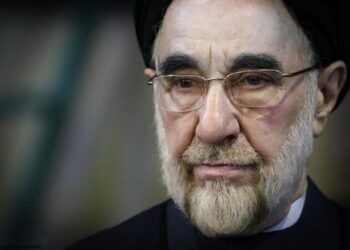No deadline was set for total segregation, however.
Ali Karimi-Firuzjayi, a member of the Majlis Education Committee, told Khabar-online of the change in an interview Monday.
Higher education in Iran is handled by the Science Ministry. Karimi-Firuzjayi said, “The science minister has announced that during the summer, when universities are closed, a plan will be formulated to determine how much gender segregation the universities can accommodate. And those universities that have the capacity will begin to implement it in September.”
The Science Ministry said four months ago that it was working to achieve gender segregation, but gave no deadline for the start, leaving some to suspect segregation would always be on the agenda for “tomorrow.” The Science Ministry has not yet confirmed what Karimi-Firuzjayi said.
Gender segregation has been a major goal of many revolutionaries.
While the government ordered all Iranian universities in February to plan for strict gender segregation, it did not go so far as to order universities to cease to be co-ed. But Karimi-Firuzjayi said the Majlis was ready to fund single-sex campuses. It would appear to be easier and cheaper to achieve single-sex campuses simply by designating half of those currently in operation as male-only and the other half as female only. But Karimi-Firuzjayi didn’t suggest that.
He did, however, suggest starting right away with single-sex cafeterias to limit contact between male and female students outside the classroom.
The deputy said, “We must make every effort to reduce contact between male and female students. This is a policy that has been called for by families, the Majlis, the clergy as well as by supporters of the regime.”
The Science Ministry said that allowing men and women to mingle on campus is a sign that Western values have not yet been expunged from the Islamic Republic’s education system.
Primary and secondary education have long been segregated under the Islamic Republic, with separate schools for boy and girls, but universities have never been segregated.
Science Minister Kamran Daneshju suggested in February that where separate laboratories and computer rooms could not be set up, times could be reserved for each gender in those facilities.
“The gender segregation rule must be enforced so long as it does not bring a halt to routine activities,” Daneshju said then, indicating an element of flexibility.
Daneshju is an appointee of President Ahmadi-nejad, who has shown no patience with gender segregation. Several years ago, he ordered an end to the ban on women attending soccer games. The uproar from many clerics was swift and vocal. Supreme Leader Ali Khamenehi personally rescinded the presidential order.
The university system is undergoing much upheaval nowadays as the clerical authorities have ordered a revamping of the curriculum so that the teaching of the arts and sciences is Islamicized and Western values are stripped away.
Daneshju put his segregation order in that context. “The problem is that our universities were built on Western values … that are not compatible with Iranian-Islamic values,” he said.














